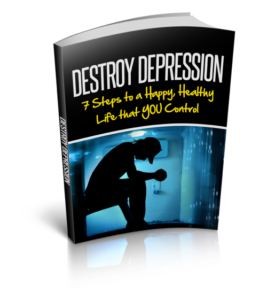I have written previously about how childhood abuse, particularly sexual abuse, can result in poor health outcomes HERE. The recent conviction and sentencing of Cardinal George Pell, as well as the Royal Commission into Institutional Responses to Child Sexual Abuse in Australia has brought this issue to the forefront of many people’s lives. While the effect of Childhood Sexual Abuse (CSA) is significant and its prevalence is disturbing there are also those who experience what is referred to as Post Traumatic Growth (PTG). This article briefly examines the effect of Childhood Sexual Abuse (CSA), its frequency as well as the potential for PTG. I appreciate that this topic evokes strong emotions, so I will endeavour to keep this article as factual as possible. This is not because I have no strong emotions about the subject, but as I have not personally experienced this type of abuse I don’t feel it is the appropriate place to express an opinion. Additionally, I prefer to focus on finding meaning and purpose in life where possible, by living in the solution rather than the problem.
Prevalence of Childhood Sexual Abuse
Prevalence rates of CSA worldwide are often difficult to confirm, as individuals may be unwilling to disclose information or complete questionnaires related to their own experiences. Recent data suggests that 1 in 4 (25%) women and 1 in 6 (17%) men reported being sexually abused. The Centers for Disease Control and Prevention (CDC) also states 25% of women and 16% of men reported sexual abuse as children. Based on data from several western counties, between 64% and 86% of perpetrators were well known to the victim, which may also explain possible barriers to disclosure. Regardless of the exact percentage of individuals who have experienced CSA, the figures are concerning and the impact considerable.
Effects of Childhood Sexual Abuse
For many, childhood was a time for playing, laughing and learning. Parents and extended family provided them with a secure and safe place to learn, love, laugh and grow into physically and emotionally healthy adults. While many children may have experienced a happy childhood, there are those who suffered trauma through sexual abuse. Children who experienced CSA often experienced negative outcomes as result of this trauma. The impact of CSA on an individual’s well-being is significant. CSA is strongly associated with a greater risk for major depression, physical illness as well as increased anti-social and criminal activity. Female survivors are more likely to be involved in abusive relationships, risky sexual behaviour and self-harming. As parents, both genders place their offspring at greater risk of dysfunctional behaviours due to generational patterns of abuse they may inadvertently pass onto their children. The Royal Commission into Institutional Responses to Child Sexual Abuse suggests, CSA can have a ripple effect on families, communities and society in general due to the impact on mental health, relationships and social integration. It appears that CSA impacts not only the survivor but society as a whole.
Current Treatments
Interventions in the treatment of CSA survivors can take many forms. Cognitive behavioural therapy (CBT) can be effective for both behavioural problems, as well as psychological distress. Group therapy can be an effective intervention in the treatment of ongoing issues resulting from CSA. As well as mainstream services such as, general practitioners (GPs), psychologists and community health services, specialist sexual abuse services that address the mental, social, financial and legal issues that can affect CSA survivors can also be helpful. Body-based therapies such as massage, yoga and Eye Movement Desensitization and Reprocessing (EMDR) therapy are also showing promising results in the treatment of trauma in CSA survivors.
Post Traumatic Growth
Despite the trauma of CSA and its subsequent effects in later life, there is potential for positive adjustment, commonly referred to as Post Traumatic Growth . PTG can be defined as the positive psychological change in individuals following significant trauma. These positive changes can manifest in improved personal relationships, a more resilient sense of self, as well as a more positive attitude towards life in general. Research suggests that a positive change in self-perception, personal relationships and world view has occurred in many adults who were sexually abused as children. For some people PTG may be cherishing current relationships, being the best parent, you can be, or finding religious or spiritual growth. Sometimes appreciating the level of control, you now have as an adult that you did not have as a child can also be empowering. Some researchers argue that it is the perception of the traumatic event, rather than the event itself, which determines the level of PTG experienced. As the late Friedrich Nietzsche stated, “If you know the why, you can live any how.” Finding meaning despite the experience may hold the key to recovery. As one woman subjected to CSA stated “I am not a victim. I am a survivor!” My experiences with people from all walks of life have convinced me that finding strength and hope in spite of life’s difficulties is what humans are good at.
Wishing you all the best in your journey
Phil Miranda
NOTE: I appreciate this article may be triggering for some people. If you or anyone you know is at risk of self harm or suicide then please follow this link to the Australian Mental Health Helplines website. International readers can use this link Global Mental Health Resources for a list of helpline numbers. If there is imminent risk of harm then please call the emergency services in your region.
Sources:
Centers for Disease Control and Prevention (2010). Adverse child experiences study. Retrieved from http://www.cdc.gov/nccdphp/ace/prevalence.htm
McElheran, M., Briscoe-Smith, A., Khaylis, A., Westrup, D., Hayward, C., & Gore-Felton, C. (2012). A conceptual model of post-traumatic growth among children and adolescents in the aftermath of sexual abuse. Counselling Psychology Quarterly, 25(1), 73-82.
Newsom, K., & Myers-Bowman, K. (2017). “I am not a victim. I am a survivor”: Resilience as a journey for female survivors of child sexual abuse. Journal of child sexual abuse, 26(8), 927-947.



